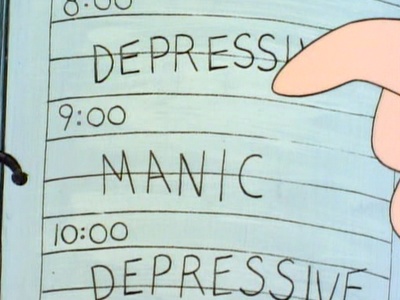Writing down one’s thoughts and emotions are proven effective to unburden one’s self, especially if bombarded with stressful situations. Decluttering the brain paves the way for focus and attention, efficient decision making and clarity of the mind. This method of alleviating stress can be instructed to children with the bipolar condition. You can start to encourage them in writing their feelings and experiences within the day to help manage and monitor their situation.

source: pinterest.com
“If you can record how you are feeling and what you are thinking, you are better able to track your emotions, notice people or places that are triggers, and recognize warning signs of your strong emotions,” says therapist Amanda Ruiz, MS, LPC.
Journal Writing In Bipolar
Journal writing is not just recording what happened during the day. This activity documents explicitly and track the stressors you encounter, how you reacted to the stress, and how you managed or overcome the situation. This is writing with a purpose to get a picture of your daily life as a person with bipolar disorder. For children, they are more familiar with diary writing. Therefore, an adult or parent should be guiding them on how to do this.
First, you need to explain the reason for the activity. It would be safe to say that there are no strict rules in writing their daily experience. The critical rule that they need to follow is to make sure that they have regular entries elaborating their usual day to include the feelings or mood they have. Their entries can be assessed by their doctor if needed in their treatment. Parents and other persons are not allowed to read the contents of the journal. This will also encourage the child to write everything without hesitation or fear that his/her parents may be reading through it.

source: mental.healthguru.com
“When you become comfortable with journaling once a week you can try to increase it to twice a week.” – Michelle Skeen, PsyD
What To Write
There are two ways of doing journal as a companion treatment for a bipolar condition or any mental illness for that matter – the freestyle and guided method.
In doing the freestyle writing, experts suggest recording one’s emotions, symptoms, sleep and eating habits during the day. It is also critical to take note of the trigger factors or elements that made you depressed or felt stressful. This information can serve as a learning tool and reference in future encounters. You can also incorporate the responses you have when starting a new treatment, medications, or have a unique experience concerning the bipolar condition. You write in your own free will without any topics or questions to follow.
The guided journaling will entail a specific theme or problem that you need to describe or elaborate. Your doctor will be giving you this as an assignment, and you will discuss this together and examine further the issues and concerns surrounding your responses. Examples would be writing about your relationship with your parents, the school, and other significant persons in your life or how do you visualize yourself in the next ten years? Topics can range from personal, familial, and social aspects depending on your doctor’s ongoing assessment and evaluation of your condition.
Journal writing offers relaxation as one tries to extract all of the information from the subconscious mind and make it more conscious and real. As this process continues to unfold, the person can create self-awareness and gets hold of their daily lives.
“Your inner critic may like to speak in absolutes, such as “always” or “never.” When you hear such statements, seek out the exception.” – Clinical Director Karin Lawson, PsyD





